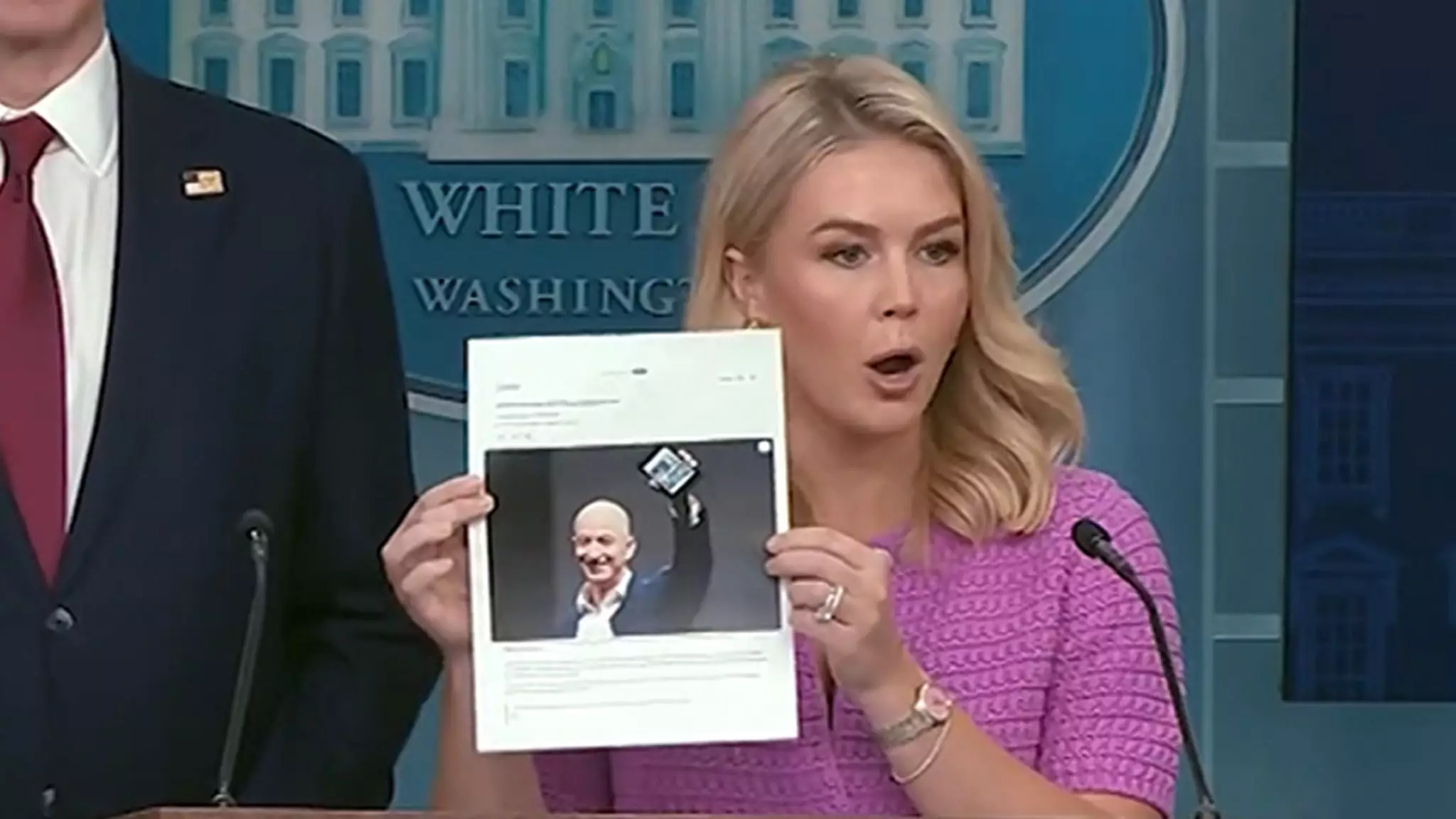In a striking turn of events, the announcement of a potential feature by Amazon has ignited significant political discourse, drawing sharp responses from the Biden Administration. White House Press Secretary Karoline Leavitt condemned the initiative, suggesting it was nothing less than a “hostile and political act” aimed at undermining the previous administration. This charged reaction stemmed from reports that Amazon intended to showcase the financial impact of tariffs imposed by former President Donald Trump during checkout processes. The discourse underscores a growing friction between tech giants and government—illustrating how platforms that once operated as neutral marketplaces now find themselves embroiled in political battles.
Tariffs and Transparency
The proposal from Amazon revolved around an initiative to clearly outline tariff costs on products during transactions—an effort perceived by some as a blatant political maneuver. If true, the feature could provide consumers with crucial information about how tariffs affect their purchases, yet it raises significant questions about the motivations behind such transparency. The criticism from the White House hinges not just on the proposed feature itself but on the timing of its implementation and the political implications it carries. Leavitt went so far as to question why a similar approach wasn’t taken during President Biden’s term to address broader inflation issues, suggesting a selective accountability that could be viewed as partisan.
Amazon’s Response: Muddied Waters
Following the backlash, Amazon sought to clarify its position, asserting that the checkout feature was under consideration for a specific low-cost store—“Amazon Haul”—and not intended for the extensive Amazon platform. This denial has juxtaposed the company’s previous narratives about transparency and responsibility with its current positioning, leading many to wonder if this is an instance of corporate self-censorship or a well-meaning, yet miscommunicated, initiative. While express transparency regarding costs can be beneficial for consumers, the specific application of such a feature amidst a politically charged atmosphere only complicates matters.
The Bigger Picture
Underlying this spat is a larger discourse about the role of major corporations in shaping economic narratives and how they wield influence over public perception. The association of Amazon with political tactics raises fundamental concerns about integrity in business practices. Companies like Amazon, which hold substantial market power, must navigate the tightrope between providing consumer value and not appearing to take sides in political conflicts. This incident further illustrates how intertwined commerce and governance have become, with corporations facing intense scrutiny over their decisions.
A Call for Responsibility
As discussions surrounding tariffs and their effects inevitably enter the public sphere, it is imperative for corporations like Amazon to adopt a stance of accountability. The impact of tariffs is real, influencing product accessibility and pricing across the board. However, delivering this message should not become a battlefield for political posturing. Instead, there should be a focus on crafting dialogues that foster understanding, highlight challenges faced by consumers, and encourage responsible business practices devoid of agenda-driven motives. Only then can companies truly serve their communities without fanning the flames of division.

